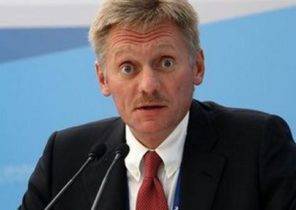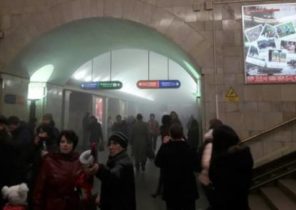
Paris — February 9, frightened of a nuclear power plant in France: the attention was focused on the station in Haubourdin in Normandy. Here the accident occurred, in which, according to first estimates, without serious consequences. However, it served as a reminder that the country ranks first in the world in the proportion of nuclear power, the danger is concealed. Haubourdin is a nice town on the shore of the English channel, where a new generation reactor, the Epr, having turned into an eternal and incredibly costly construction, exceeding all original estimates. In reality, the French fear not so much for the safety of this reactor, how much for a state located to the East of the country in Alsace reactor in Fessenheim, the most (terrifyingly) the old station in the country.
One of the main problems of the reactors in this part of Europe (a total of 58, and they generate 76% of the electricity produced at the national level) is that in some cases they are so old that they become dangerous. Their stop would cost incredibly expensive EDF (“electricité de France”) in charge of them colossus (85% of which belong to the state), and state the debts which are constantly growing. Besides, the EDF is going through difficult times, as after the accident at Fukushima, the sector “made in France” less work for export, not counting the technological and financial poluchaetsia, which was a station of the Epr. And here we return to Fessenheim. It is the oldest nuclear power plants in France, operational since 1977. It is located on the banks of the Rhine near Germany in an area with high risk of floods, and even seismic threats. Francois Hollande, before becoming President in 2012 promised that it will be closed. But this did not happen. Fessenheim still works, and it is unclear when, finally, he will close their doors. However, it is still in operation and others are too old nuclear plants (e.g., Playas, Bugey, Tricastin).
The problems of nuclear plants in Europe are limited to France.
The average age of 128 operating in EU reactors is about 32 years old. The most dangerous situation in Bulgaria. At the NPP “Kozloduy” four of the six originally existed reactors were closed before the country’s accession to the EU, at the insistence of Brussels. One of them operates now only two, the period of operation one of which ended in November last year (it continues to function). Even more serious risk is a country that is not a member of the EU, but is directly from his Eastern border, is Ukraine, where Chernobyl was a terrible accident at a nuclear power plant. Here due to financial difficulties and the civil war has been curtailed investment in the 15 operating reactors (they provide more than 56% of the energy produced). In December 2014 at the plant in Zaporozhye accident occurred, which became one of the main subjects of concern in recent years in Europe.
But Germany after the shock from the events at Fukushima is the country most seriously carries out its program of elimination of nuclear reactors (of which eight are still active, that is, 16% of electricity production). Here’s the final renunciation of nuclear reactors is planned for 2022, it will constitute 47.5 billion euros. Thus, German authorities are now putting pressure on its neighbors, so that even if they will not abandon nuclear energy, at least ensure the safety of the reactors. Serious disputes arise not only with France, but with Belgium (seven reactors producing 37.5% of electricity). Here the main attention is focused on the NPP Tihange, which in recent years is running on its last legs. With regard to Switzerland, after the accident at Fukushima, she decided to abandon nuclear energy but without defining clear deadlines for the closure of five of its reactors. In November last year, a referendum was held to reduce the maximum duration of the stations to 45 years. However, this proposal was rejected. The Swiss nuclear power plants, Beznau has been operating for 47 years. It is the oldest station in the world. And she will continue to work.







